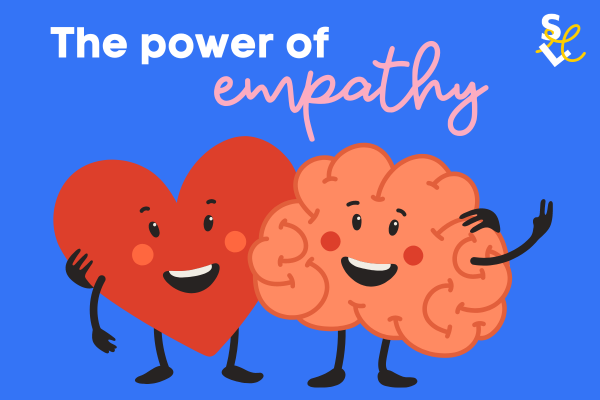Empathy; a powerful tool for school leaders.
According to Brené Brown, empathy is “an emotional skill set that allows us to understand what someone is experiencing and to reflect back that understanding.” She says that empathy helps decision making, enhances wellbeing and strengthens relationships. As a school leader, cultivating the transformative power of empathy could have a significant impact on your own performance, wellbeing and relationships, as well as on that of your team.
What it is and isn’t
Empathy is not the same as sympathy. It isn’t pity or feeling sorry for someone and it isn’t about trying to fix or rescue someone; often a natural reaction that many educators I’ve worked with have to work hard to overcome.
Empathy is about recognising, acknowledging and understanding another person’s emotions. You don’t have to have lived through the same experience, but by focusing on how that person is feeling, you can tap into your own past experiences where similar emotions came up, even if the situation was different.
Before you start beating yourself up for all the times you haven’t shown empathy to a friend or colleague, give yourself a break because this can be hard to do, especially in the throes of a busy school day. Just like any skill it becomes easier, more natural and stronger the more you practice. So, let’s take a look at some ways you can grow and develop your empathy.
Avoid judgement & find a new perspective
One of the things that can be a barrier to really understanding how a colleague might be feeling and demonstrating this understanding to them is judgement, an enemy of empathy.
To avoid judgement, it’s important to deal with facts and not put value judgements on situations, people or events. Avoiding judgement and demonstrating true empathy involves listening, really listening. This can feel impossible sometimes in the midst of school chaos, but it will have huge pay offs for you and your team. Be careful, because judgement doesn’t always show itself in words, it can be demonstrated in facial expressions, body language or unrelated, throw away comments.
Lean into emotions
Does talking about emotions at work feel scary!? It can be, but by recognising what others are going through and tapping into your own past experiences that generated similar emotions can really help to grow and show empathy. By (you guessed it!) really listening , asking questions and clarifying what’s been said you can get to the heart of how someone is feeling. Remember to stay out of judgement here, especially if you’re finding it hard to tap into similar experiences yourself. One way of doing this is to rephrase ‘why’ questions but asking ‘what were the reasons for…” instead.
Your job is not to fix things!
Instead of trying to rescue or fix the problem, or especially the person, just showing that you understand is often enough. Sometimes all the person sharing wants is to be heard and understood. Acknowledging what they’re going though can be enough, a simple “That’s hard” might just be all they need.
Empathy for self
So far, we’ve talked about having and showing empathy for others but having it for yourself is just as important and often a lot harder to do. Most people are more unkind, unfair and cruel to themselves, showing very little empathy for themselves in challenging times. If you haven’t read it already then you might find this article on judgement useful.
Impact on teams
Being part of a school leadership team can be tough at times. Each member has their own stuff going on which can cause them additional stress as well as impacting the team. When individual team members have a strong sense of empathy for others as well as for themselves, deeper connections can be forged which lead to increased trust and openness. This in turn leads to enhanced performance, professional relationships and wellbeing – boom! ❤️💥






0 Comments